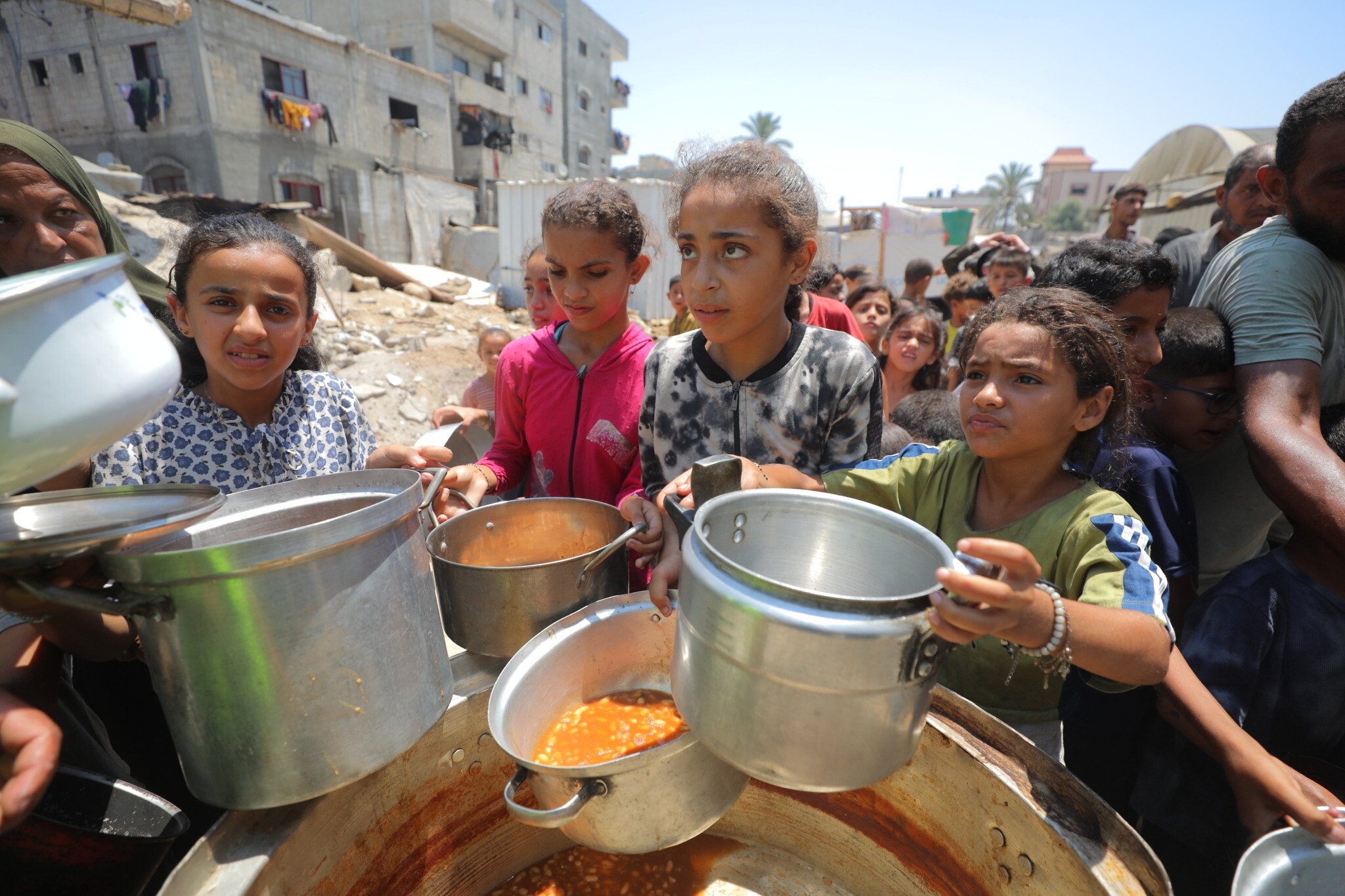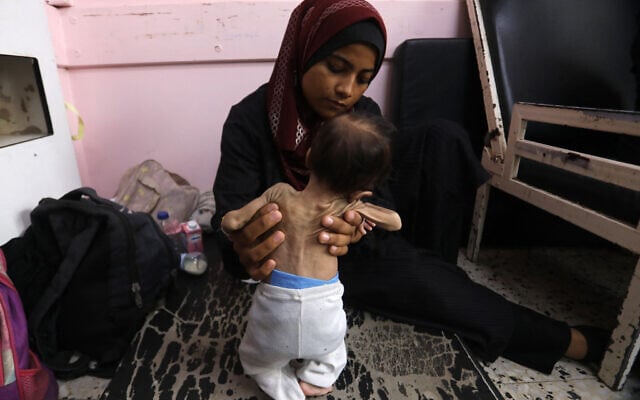



Israel claimed Thursday that a viral image of 14-year-old Palestinian boy Abdul Qader al-Fayoumi, who reportedly died of starvation in Gaza, is misleading, saying the teen suffered from a genetic neurological disorder and was treated in Israel in 2018.
In a post on its English-language X account, the Defense Ministry’s Coordinator of Government Activities in the Territories (COGAT) accused the Hamas terror group of exploiting images of ill children to spread misinformation and blame Israel.
“Hamas is using photos of sick children to push the ‘starvation’ narrative and blame Israel. But the truth tells a different story,” the post read, adding that Israel had evacuated 180 patients and their escorts for treatment outside the country.
“Hamas, meanwhile, keeps cynically exploiting them for its own twisted agenda, and part of the international media buys it,” the post said.
The photo is the second that the IDF has sought to cast doubt on since reports of widespread starvation, and deaths from acute malnutrition, spiked in Gaza. On Tuesday, a UN-backed monitor said the “worst-case scenario of famine” is “now unfolding” in the enclave. Israel has disputed that there is starvation in Gaza but, in the face of heavy international pressure, initiated a series of measures to increase the flow of humanitarian aid.
Images of emaciated Gazan children have heightened worldwide alarm and revulsion at the crisis, along with accusations that Israel is blocking food from reaching civilians there.
But the IDF and pro-Israel activists have said some photos paint a distorted picture of the situation.
Earlier this week, the IDF said another viral image of a skeletal Gazan child, 5-year-old Osama al-Rakab, was misleading, as he suffers from a serious genetic illness that is unrelated to the ongoing war, and is currently undergoing treatment abroad. And, following allegations of inaccuracy, The New York Times appended an editor’s note to an article about starvation in Gaza, acknowledging that a photo that ran on its front page featured another boy with “pre-existing health problems.”
Reports out of Gaza last week claimed al-Fayoumi had died of starvation. The COGAT post did not dispute his death and, in response to an inquiry from The Times of Israel, did not elaborate on the veracity or details of the image itself.
Israeli officials say many of those who died while malnourished in Gaza were suffering from preexisting illnesses. Famine experts say this is typical in the early stages of a hunger crisis.
In the case commented on by COGAT on Thursday, the unit says al-Fayoumi was one of hundreds of Gazans with similar conditions who were treated in Israeli hospitals before Hamas destroyed the Erez Crossing on October 7, 2023, as part of its onslaught in southern Israel.

Since then, Israel has shifted medical evacuations to third-party countries via the Kerem Shalom Crossing and Ramon Airport. Over 3,700 Gazans — mostly patients in need of treatment and their escorts — have exited that way, according to Israeli officials.
Israel’s actions to increase humanitarian aid have proven controversial on the far right, whose leaders have opposed the entry of supplies into Gaza, saying they provide a lifeline to Hamas. On Thursday, MK Zvi Sukkot (Religious Zionism) said in a radio interview with the ultra-Orthodox Kol Berama station that hunger in Gaza wouldn’t bother him, blaming the crisis on Hamas.
“Personally, it wouldn’t pain me if there were starvation because of the war, because it’s their fault,” he said. “The starvation could end the moment the war ends. The war will end the moment Hamas decides to end it and decides to stop trying to murder us.”
Reuters contributed to this report.
